Explainer: What are the contours of Gaza truce deal accepted by Hamas?
By Maryam Qarehgozlou
Palestinian resistance movement Hamas has agreed to the terms of an Egyptian-Qatari ceasefire proposal while Israel continues to procrastinate and play dilly-dallying games.
Shortly after the Gaza-based resistance movement accepted the proposal after marathon negotiations mediated by Egypt and Qatar in Cairo, the Israeli regime went ahead with its plan to invade the southern Gaza city of Rafah, taking control of the border crossing.
The document of the deal, seen by various media outlets, includes a timetable for an exchange of nearly 100 Israeli captives held by Hamas with an unspecified number of Palestinians held illegally in Israeli prisons.
It also mentions an initial temporary halt in the fighting which would lead to a permanent ceasefire and complete withdrawal of the Israeli military forces from the blockaded territory.
In a statement on Monday, Hamas said Ismail Haniyeh, the head of its political bureau, told the Qatari prime minister and Egyptian intelligence minister that the resistance groups had accepted the terms of the truce and a prisoner-captive swap deal.
"The ball is now in Israel's court," Hamas's deputy leader Khalil al-Hayya was quoted as saying.
Hamas' announcement led to celebrations in the streets as Palestinians expected the deal to bring to a halt the seven-month devastating war that has killed more than 34,700 people so far, and displaced more than 85 percent of the besieged territory's 2.3 million population.
However, the embattled Israeli premier Benjamin Netanyahu said late on Monday the proposal is "far from Israel's basic requirements" and said he will send a delegation to the mediators for further talks.
Netanyahu, however, reiterated Israel's commitment to invade the southern Gaza city of Rafah, saying its war cabinet had "unanimously decided" to continue with its long-threatened assault on the city, "to exert military pressure on Hamas."
Reports revealed that overnight Israeli forces and tanks were seen near the Rafah border crossing and on Tuesday the military announced it had achieved “operational control” of the Palestinian crossing, where more than one million internally displaced people are sheltering.
The military also said it halted aid flow, falsely claiming that it was being used for “terrorist purposes.”
Here is a quick look at the truce deal put forward by Qatar and Egypt and accepted by Hamas:
What are the contours of the truce deal?
The long-awaited truce deal outlines a three-phased approach to an agreement between the Israeli regime and Hamas in Gaza. Each stage would last at least six weeks.
Key points include the release of Israeli captives in exchange for Palestinian prisoners, the return of displaced persons, the provision of humanitarian aid, the withdrawal of forces, and reconstruction work.
Here's a detailed breakdown of each stage:
The initial stage, which lasts 42 days, involves a temporary halt to Israeli aggression against Palestinians in Gaza and demands that Israeli forces retreat to defined areas along the Gaza border and to the east, away from densely populated areas of the territory.
Israeli forces are required to withdraw from specific areas in Gaza, according to a predetermined timeline, allowing for the return of displaced Palestinian civilians to their homes and ensuring freedom of movement within Gaza.
Additionally, humanitarian aid, encompassing vital supplies such as medical assistance, food, and fuel, is guaranteed to flow without impediments through designated channels.
In this stage, the exchange of captives and prisoners, a key part of the deal, is meticulously outlined, delineating criteria and a schedule for their release, with considerations for diverse categories including women, children, the elderly, and the sick.
By the end of the first stage, Hamas would have released 33 captives (whether captives who are alive or the remains of captives who have died) including women, anyone above the age of 50, those who are sick, or non-soldiers under the age of 19.
In return, the Israeli regime would release 30 Palestinians it has detained illegally for each Israeli captive and for every female soldier released by Hamas, Israel would release 50 Palestinians.
All measures in this stage, including the temporary cessation of attacks on Gaza, relief and shelter, withdrawal of forces, etc., shall continue in the second stage until a sustainable calm is declared.
In the second stage, also lasting 42 days, the focus shifts towards cementing the lasting peace through the formal announcement and implementation of a permanent ceasefire.
After the return to sustainable calm takes effect, all remaining Israeli captives (civilians and soldiers) would be exchanged for a yet-to-be-specified number of Palestinian prisoners held arbitrarily in Israeli prisons and detention camps for years without charges and trial.
This phase culminates in the complete withdrawal of Israeli military forces from Gaza.
During the final stage, the exchange of bodies and remains of deceased individuals from both sides will be facilitated.
A comprehensive reconstruction plan, spanning three to five years, will be set in motion, for the restoration of homes, civilian infrastructure, and essential services within Gaza and all those affected by the devastating war will be compensated.
Additionally, the blockade on Gaza would be brought to an end, alleviating the humanitarian crisis gripping the narrow strip for about 17 years.
The agreement is overseen and guaranteed by Qatar, Egypt, and the United Nations, and includes continuous provision of humanitarian services, infrastructure rehabilitation, shelter for displaced persons, and oversight of reconstruction efforts.
"Netanyahu is confronting not only Palestinians but the whole world."
— Press TV 🔻 (@PressTV) May 7, 2024
Speaking to Press TV, the chief of the Palestinian National Initiative @MustafaBarghou1 discussed two possibilities that could unfold given Netanyahu's failure in Gaza.
Watch in full:https://t.co/0ljBm3A2JP pic.twitter.com/MglFePfunC
How did Israelis respond to the deal?
An Israeli official, as cited in media outlets, claimed that Hamas has accepted a "softened" version of an Egyptian proposal, which includes "far-reaching" conclusions that Israel cannot accept.
"The Hamas announcement appears to be a ruse designed to cast Israel as the side refusing a deal," the unnamed official was quoted as saying by Reuters.
The far-right regime minister Itamar Ben-Gvir also claimed that Hamas’s acceptance of a ceasefire is a "trick" and called for the invasion of Rafah, which remains the only crucial lifeline for aid after Israel closed its border crossings with Gaza on October 7.
"There is only one response to Hamas’s tricks and games — an immediate order to conquer Rafah, increase military pressure, and continue to crush Hamas until it is utterly defeated," he said.
However, in Tel Aviv pressure is building on Netanyahu, after Hamas agreed to a ceasefire proposal.
On Monday night, thousands of people held demonstrations in Tel Aviv, demanding that Israeli officials accept the deal and bring the captives held in Gaza back home.
One of the family members of a captive was quoted as saying that protesters would set ablaze the Tel Aviv regime if the ceasefire deal and return of captives did not materialize.
Dozens of Israeli protesters blocked a major road in Tel Aviv on Monday night, calling on the regime to agree to the Gaza ceasefire proposal, which was accepted by Hamas.
— Palestine Highlights (@PalHighlight) May 7, 2024
Follow Press TV on Telegram: https://t.co/fvRn3KuApw pic.twitter.com/YQFcRqIRuY
How did Americans react to the deal?
The US has so far refused to clearly and unambiguously comment on the matter with Matthew Miller, the State Department spokesperson, saying Washington would "withhold judgment" until officials had time to fully review the response of Hamas.
John Kirby, the White House National Security spokesperson also said he did not want to say anything that would jeopardize the prospects of reaching an agreement.
Meanwhile, US-base news website Axios revealed on Tuesday that Israeli officials criticized US President Joe Biden's administration because they knew about the latest ceasefire deal, but didn't brief the regime officials before Hamas announced it accepted it on Monday.
The report said the US invited the Israelis to Cairo over the weekend to negotiate the ceasefire proposal, but they chose not to send a team.
Two senior Israeli officials were quoted by Axios as saying that when the Hamas delegation was in Cairo over the weekend, the Egyptians gave them a new proposal without coordinating with Israel.
The Israeli officials also added the last touches on the proposal were made on Monday morning in Doha with the Biden administration's knowledge, saying "Israel got played" by the US.
The report said the latest episode will "deepen tensions between the Biden administration and Israeli leaders over the war in Gaza."
China warns US against ‘plotting’ on Taiwan, says it risks confrontation
VIDEO | Zionist takeover of UK police
VIDEO | Trump-Netanyahu meeting
Iran’s shortest rail route between China and Europe
'Shameful': Hamas decries Western systemic campaign against UN expert Albanese
Ethics in suspension: Epsteinization of power in today’s post-shame politics
Trump knows he cannot use military force to press Iran into accepting Israeli demands: Mearsheimer
Iran president vows to fast-track corridor projects to ensure regional security


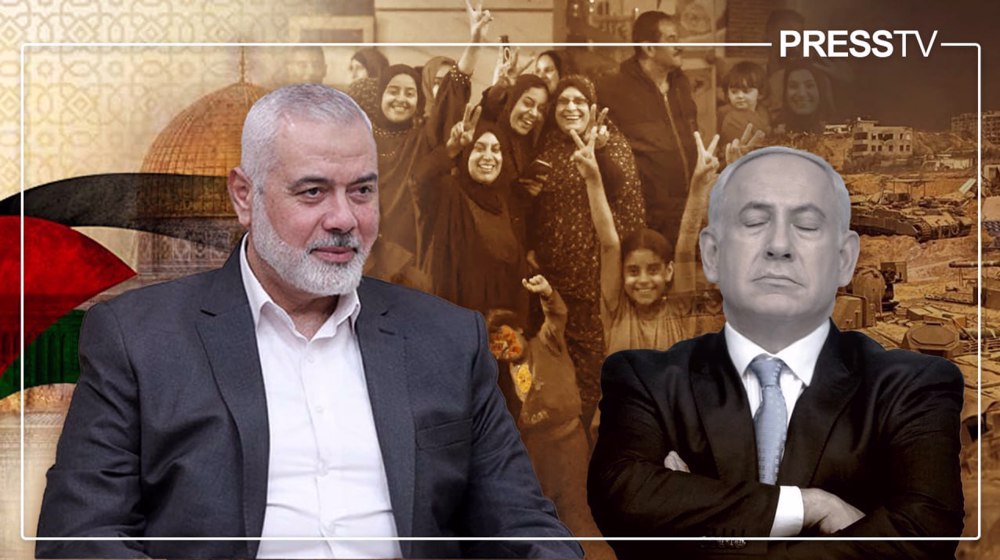
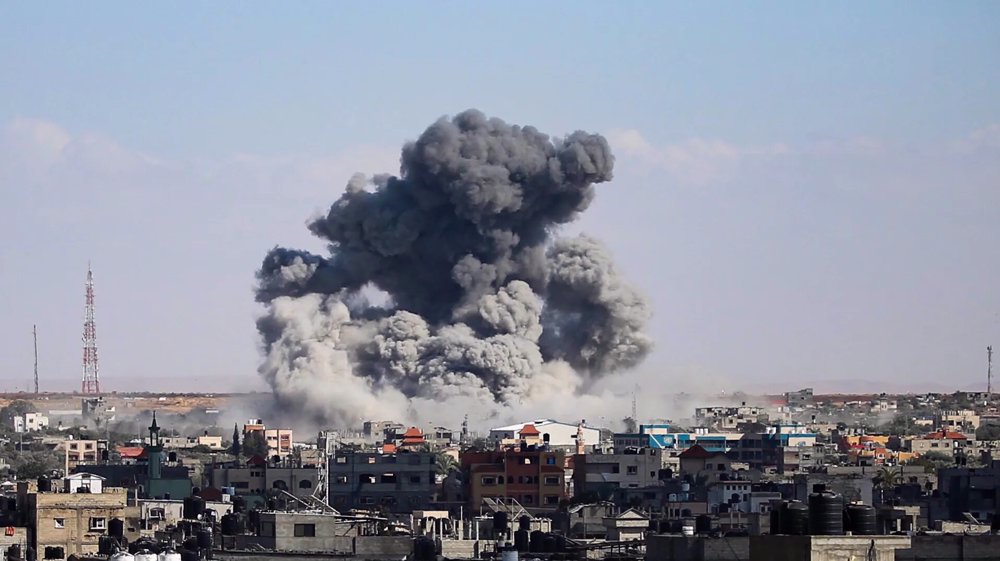
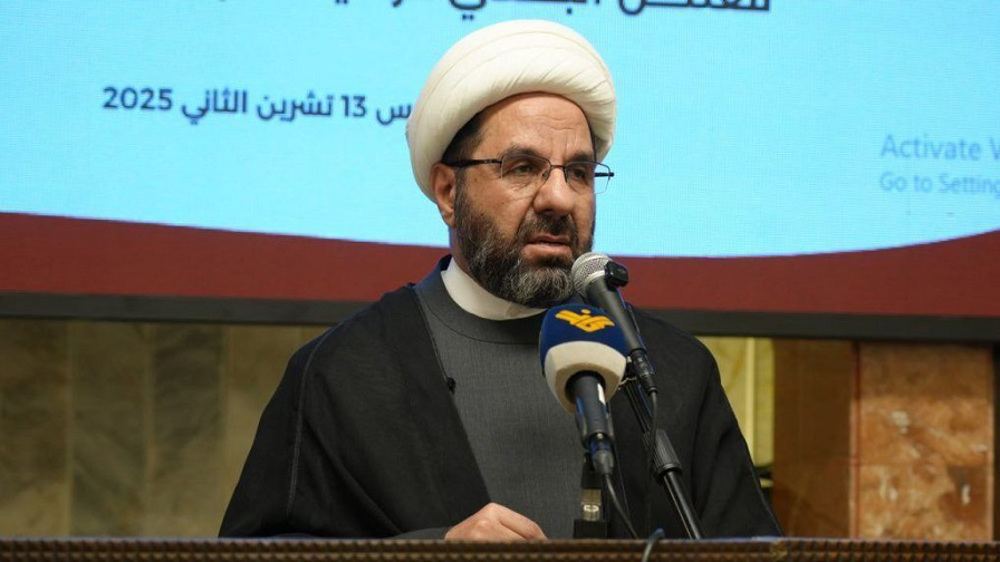
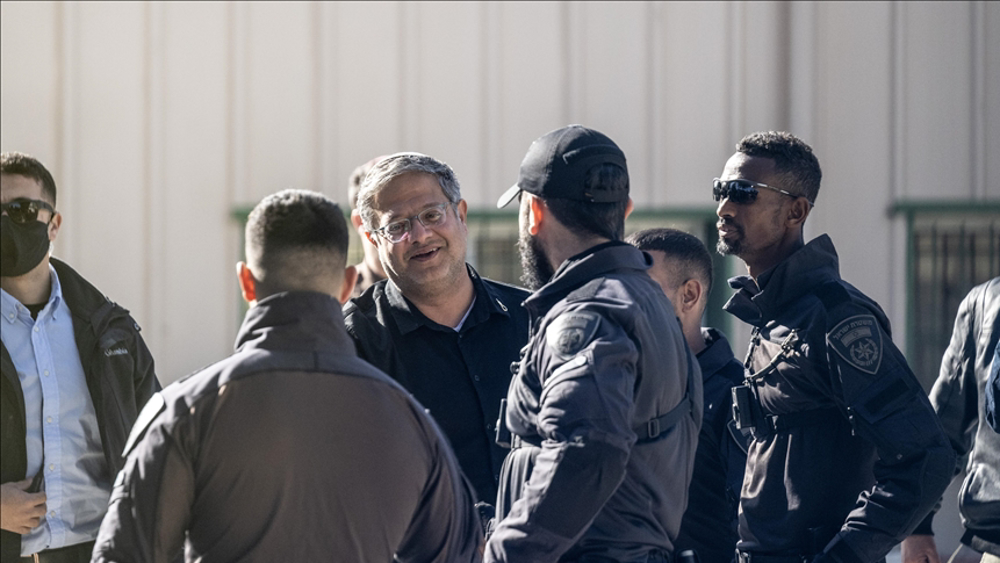
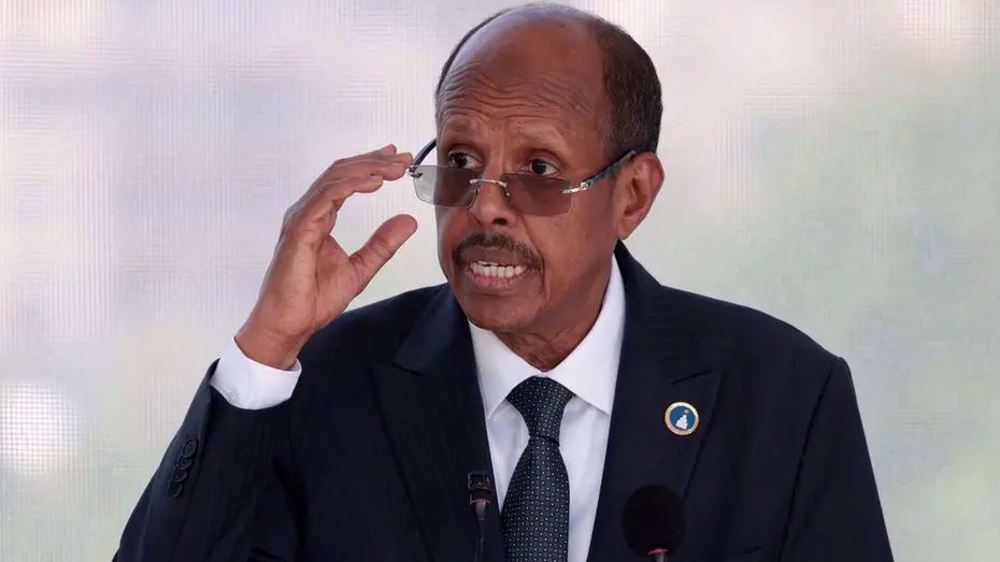



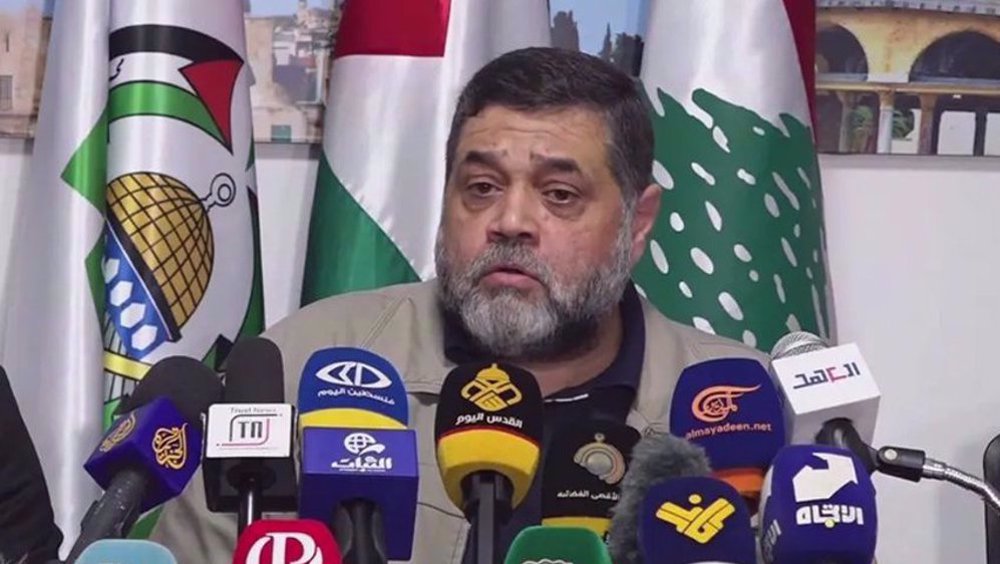
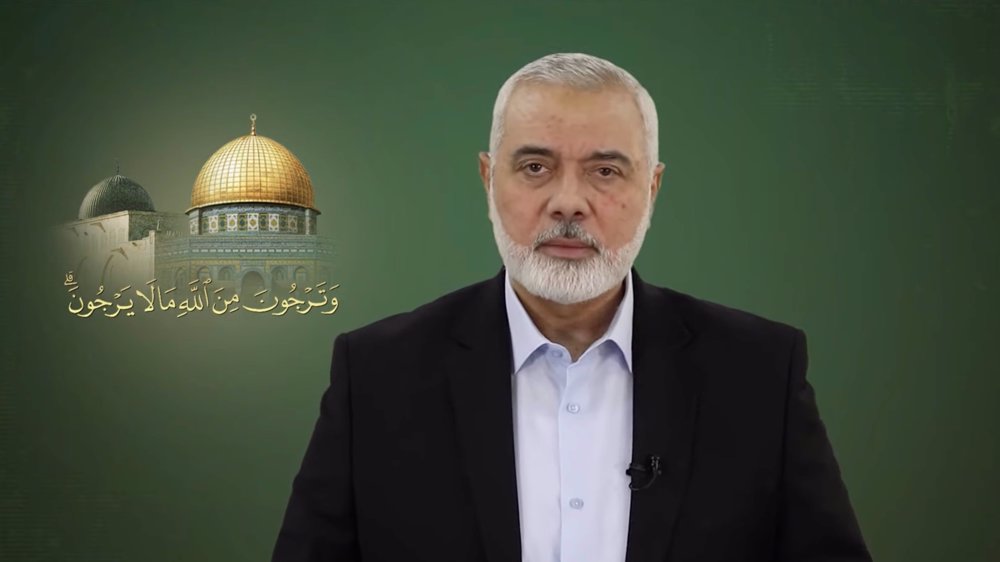
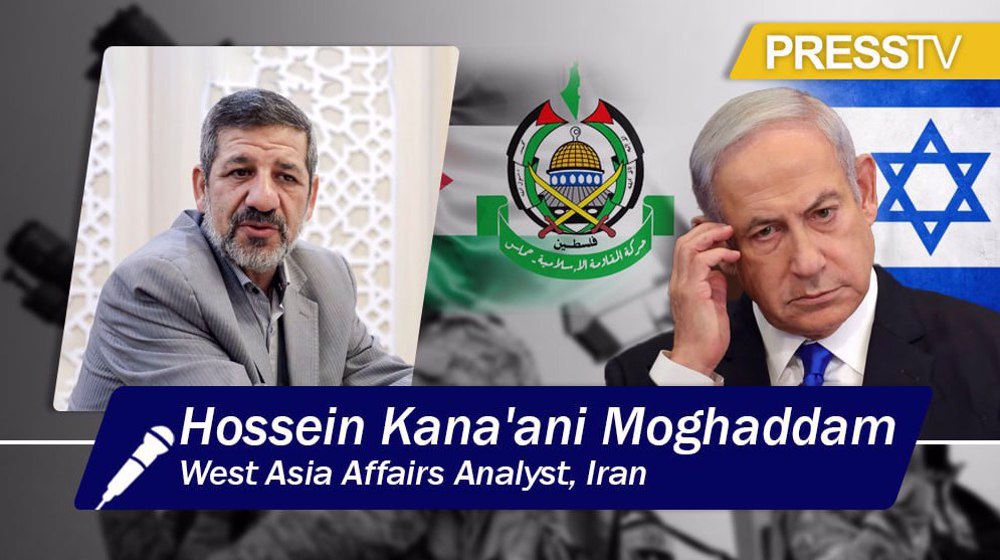
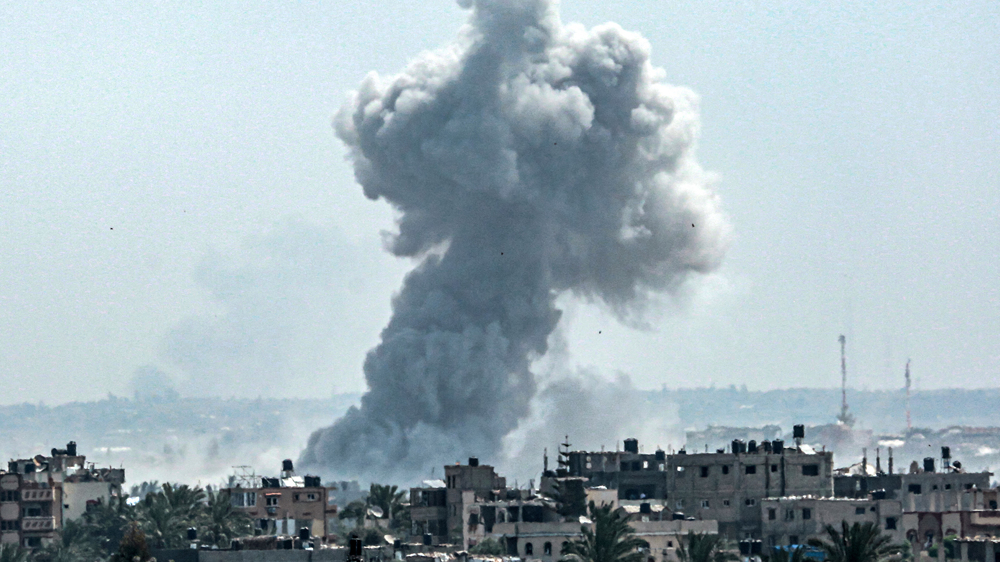
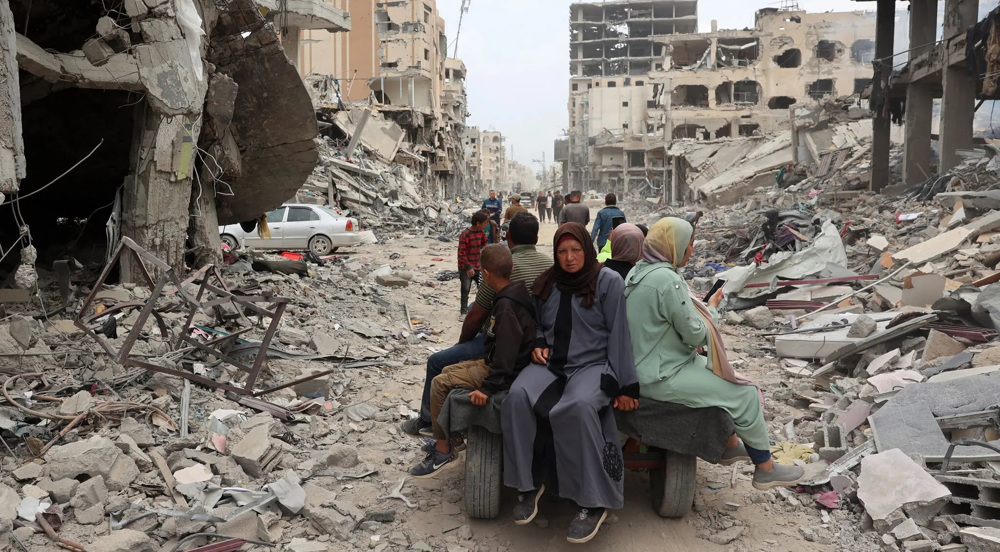

 This makes it easy to access the Press TV website
This makes it easy to access the Press TV website